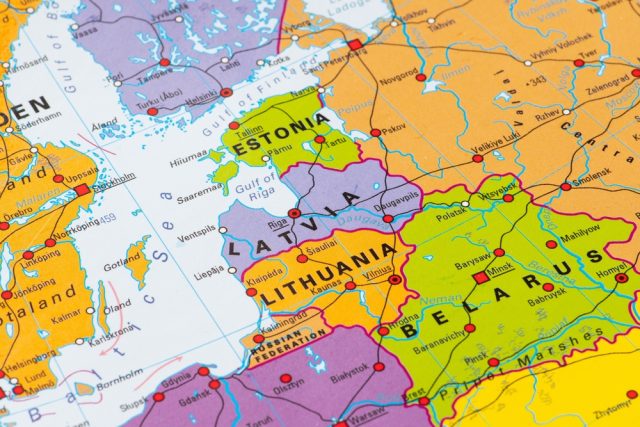
Latvia is a historic nation in Europe with a recent past strongly conditioned to Russia and the Soviet Union. In the 1980s, the Latvian Independence Movement demanded, among other things, freedom of the press, an end to the “Russification” of the country and the formation of independent political parties; finally, in 1989, the Latvian Popular Front Congress won the elections, leading the country to economic and political independence despite resistance from the Government in Moscow. In 1990, the Congress of the Soviet Union formally recognized, within the framework of Perestroika, the independence of the republics of Estonia, Lithuania, and Latvia.
Despite the end of more than 40 years of Russian domination over the Baltic countries, during those decades the country underwent numerous migration processes, leaving today’s Latvia with a large proportion of the country defining itself as Russian. It is with this significant presence of Russians among the population that Latvia has faced the Russian invasion of Ukraine. Under the defensive umbrella of NATO, Latvia has had to deal with the proper management of the information to which its people are exposed in order to cope with the interference of Russian interests in their country through disinformation.
ECR report: a rigorous study to understand the situation in Latvia
The European Conservatives and Reformists Party (ECR) has published the report “Impact of Russian propaganda in Latvia” which analyzes the presence of Russian propaganda in the Latvian media. The report is divided into two chapters. First, it reviews the information broadcast by the media in the days following the beginning of the conflict. In this regard, the report highlights the Delfi.lv website as one of the most important in the Baltic countries, where Latvian-language news items were reportedly broadcast claiming that Russia was committing war crimes. However, on the first day of the conflict, the same Russian-language page published two articles by the former Minister of Defense, Artis Pabriks, inciting readers to doubt the stability of the Government. These early Russian-language news stories contrasted with those that began to be published from the second day of conflict, in which it was already being claimed that Russia was committing war crimes.
Further on, the report shows the contrast between the frequency of Latvians accessing Latvian and Russian-language media. The statistics show the differences between the use of printed newspapers, television, radio or internet in both languages and their frequency among Latvians, showing how clearly Latvian-language media has more strength, but not disregarding the important weight of, for example, Russian-language internet sources: up to 21.5% of Latvians would make use of these websites every day (compared to 42.4% in Latvian language).
The most decisive point of the report shows Latvians’ response to several direct questions, such as their feeling of majority strength in NATO membership, their predisposition to fight for their country (about 32% of Latvians would be) or their perception about an alleged rise of fascism, one of the most used arguments by Russians to influence the Latvian population. In addition, the study identifies that Latvian-language media consumers tend to reject with greater determination any message with pro-Russian connotations and vice versa, but also that it is Government performance-related aspects that best predict individuals’ attitudes towards Russian propaganda.
We can conclude that the fight against Russian propaganda in Latvia involves many factors that have not yet received sufficient attention. Hence the importance of such reports, which set a first precedent and point the way towards a better understanding of the potential vulnerability of citizens of an EU member state to this type of propaganda.



 Subscribe
Subscribe